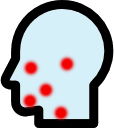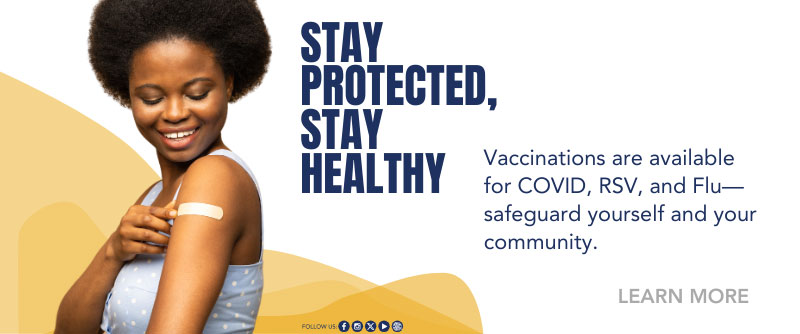More than 100 Mississippians a year die from cancers of the mouth or throat.
Head and neck cancers are too common in Mississippi, and often go undetected until they develop into serious or life-threatening disease. Knowing the signs and causes of these cancers, and getting regular doctor and dentist visits are the best ways to stay free of these cancers.
Where Head and Neck Cancers Occur

- The mouth, lips, tongue and gums (oral cancers)
- The throat
- The vocal cords
- The sinuses
Symptoms can be as simple as a sore throat that won't go away, difficulty swallowing, or a sore in the mouth that doesn't heal. They all can be indicators of a serious cancerous condition, though.
Avoiding Head and Neck Cancers
Alcohol and Tobacco Are Leading Causes
Alcohol and tobacco use, including smokeless tobacco and exposure to secondhand smoke, are the most important contributors to mouth and throat cancers. The more you use alcohol, tobacco, or both, the greater your cancer risk.
Reducing alcohol use and quitting tobacco are powerful steps to reduce your cancer risk. Free help is available for quitting tobacco
- Tobacco Quitline: Free expert help quitting tobacco
- More about benefits of quitting and ways to start
HPV Infection Is a Preventable Cause
Human papillomavirus (HPV) is a very common infection that rarely causes serious symptoms, but causes some specific oral cancers. Vaccination against HPV is highly effective against infection, though, and dramatically lowers the risk of these cancers, especially if you are vaccinated as a teen or young adult..
Oral cancers caused by HPV are significantly higher in men than women.
Symptoms
Head and neck cancers can have a variety of symptoms. Mention any pain or unusual conditions in the neck, mouth or ears to your dentist or doctor. Regular checkups with your dentist and doctor can also help find early symptoms of possible cancer.
Symptoms can include:
- Lump or sore in the neck, mouth or throat that is painful or does not heal
- Sore throat that does not go away
- Pain or difficulty in swallowing
- A white or red patch on the gums, the tongue, or the lining of the mouth
- Unusual bleeding or pain the mouth
- Chronic sinus infections that do not respond to treatment with antibiotics
- Numbness in the face, chin, or neck that does not go away
Prevention
Routine checkups with your doctor or dentist can detect early signs of possible cancer.
Quitting tobacco greatly decreases your oral cancer risk.
HPV vaccination is highly effective at preventing oral HPV infection.
Reducing alcohol consumption also reduces your cancer risk.

